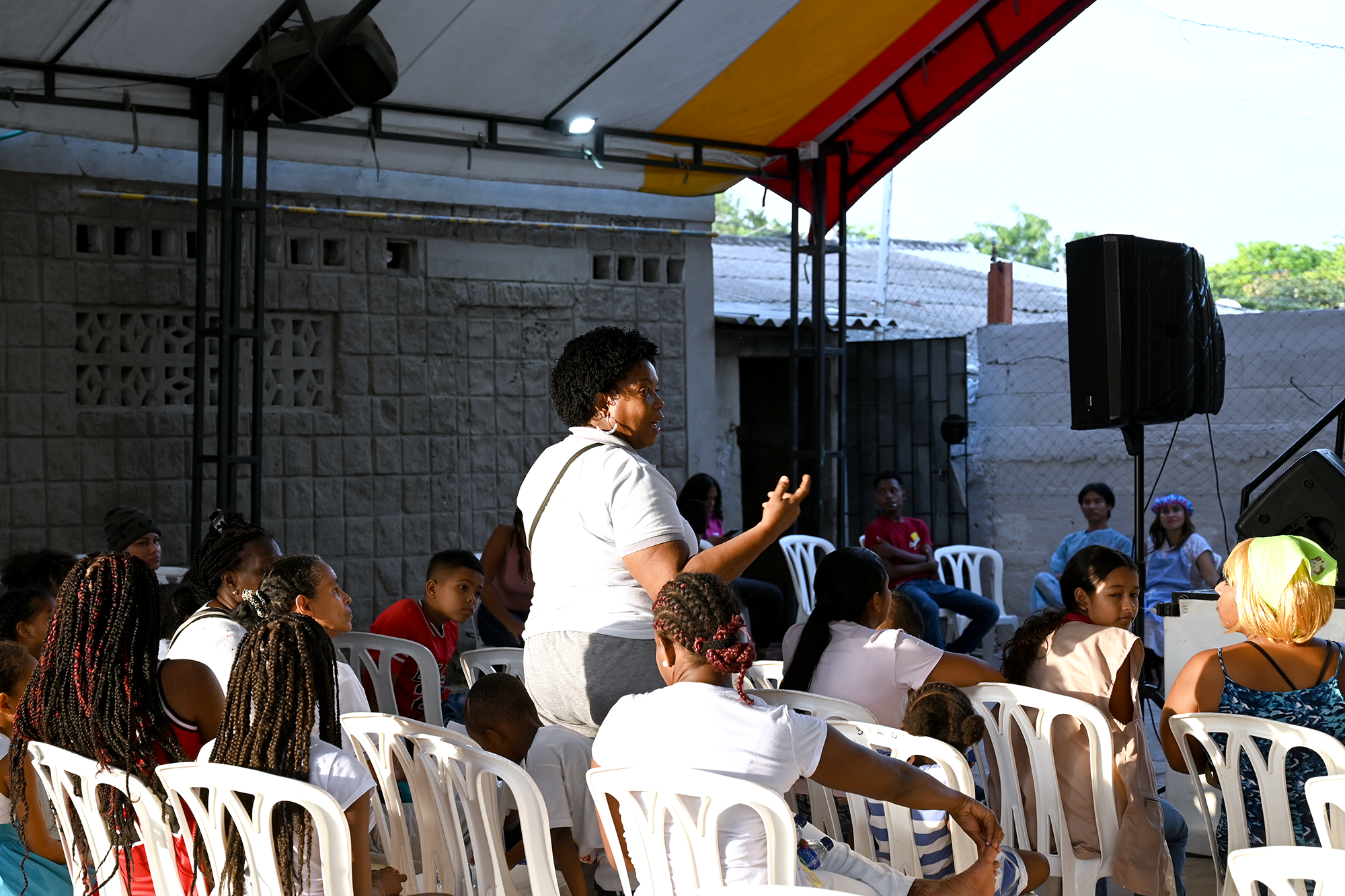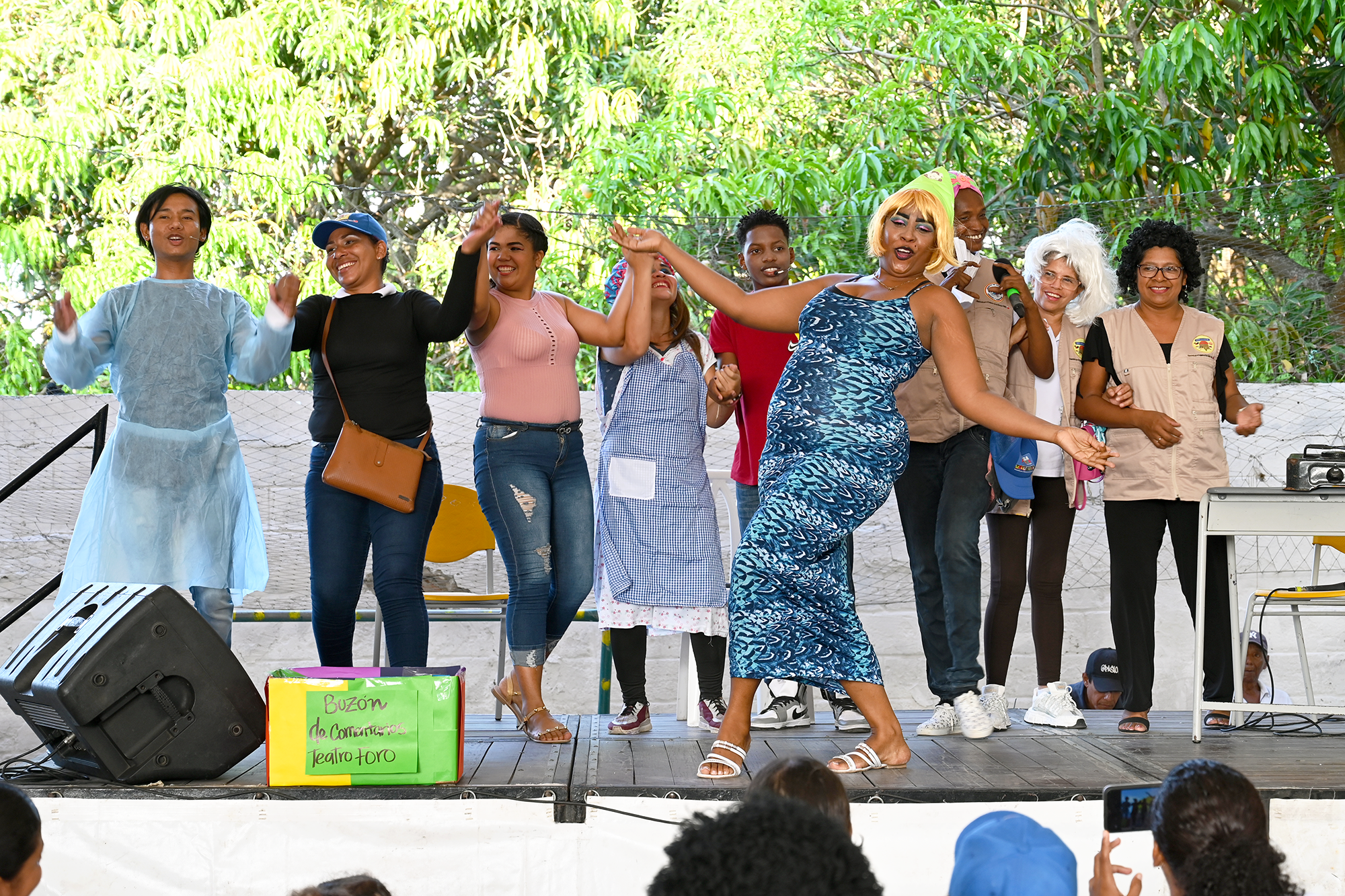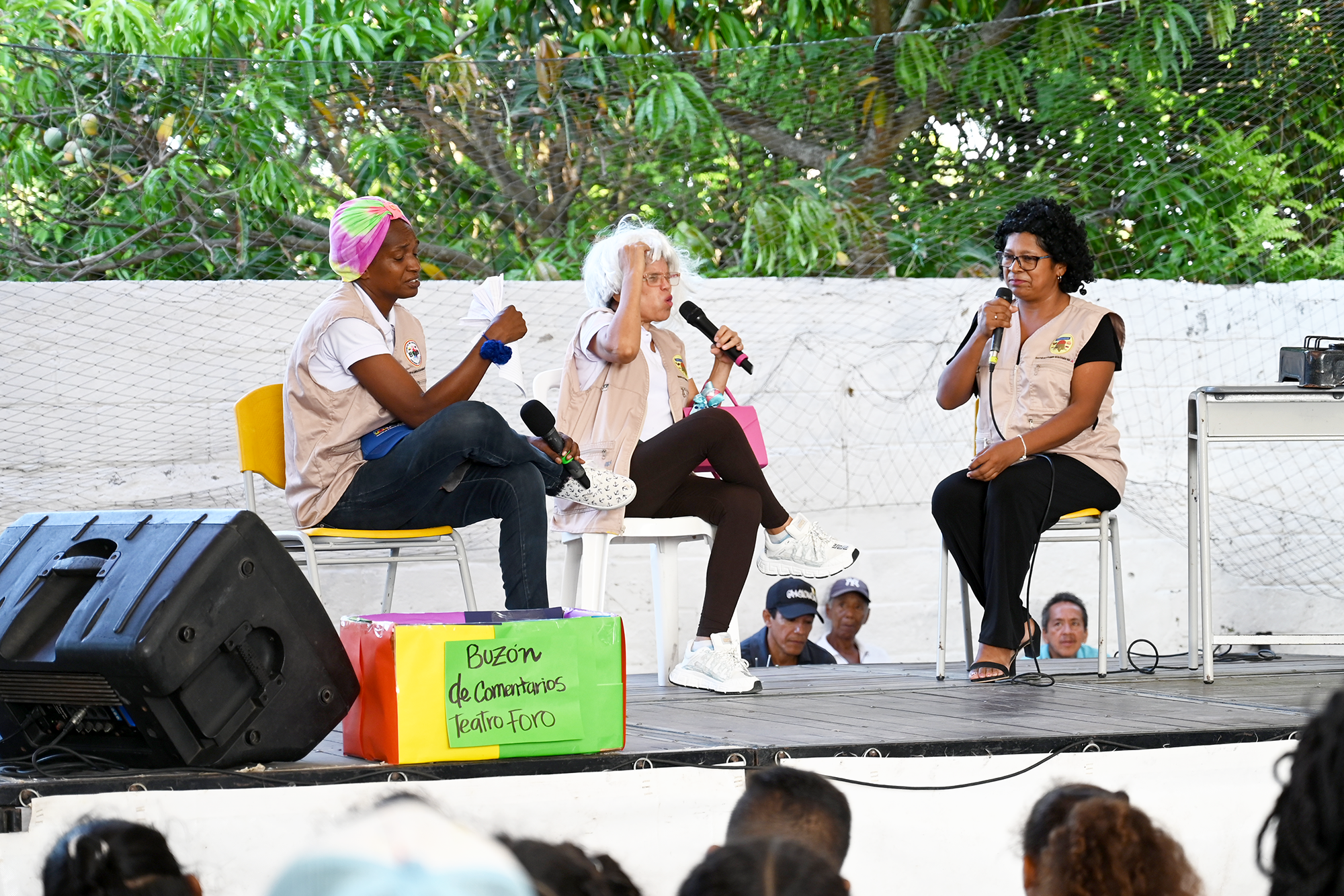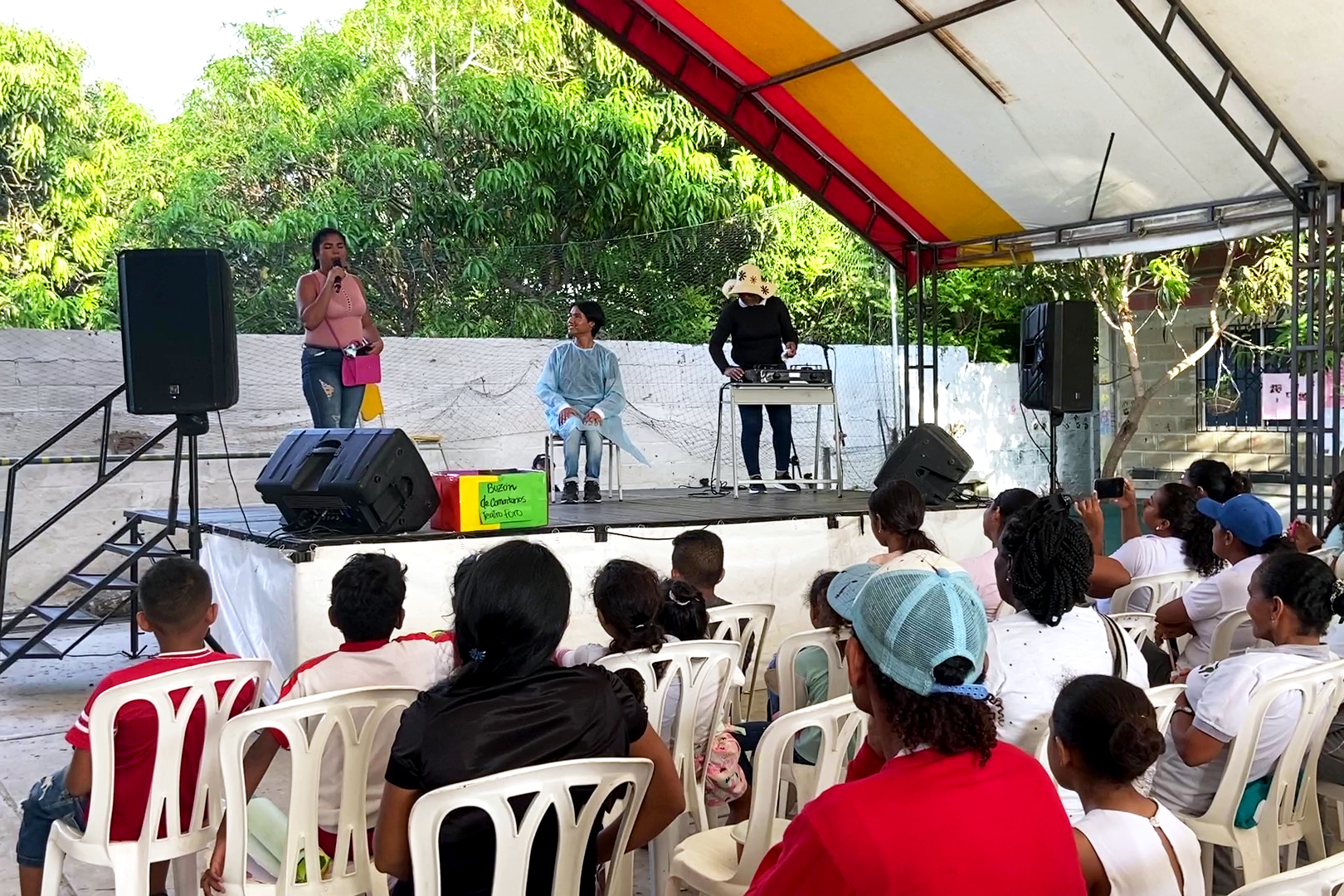Let’s set the stage: It’s late afternoon in the Nueva Colombia neighborhood of Barranquilla, Colombia. Dozens of people have gathered at a stage set up in the local primary school yard. They weren’t there to see a school play, but rather a community-centered theater performance to address stereotypes and prejudices related to migration.
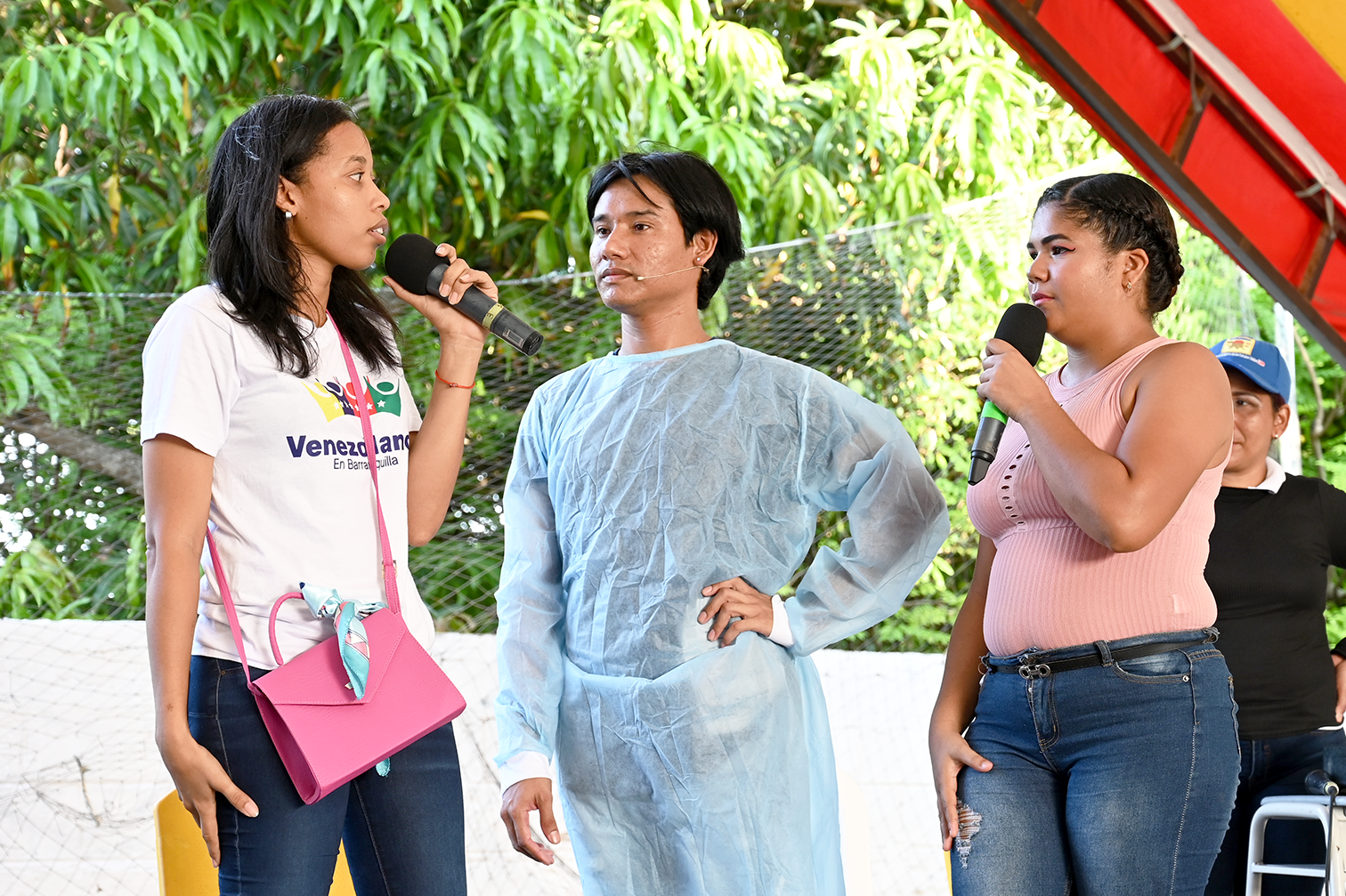
A central part of the community theater activity is the invitation to all audience members to comment on the skits and join the actors on stage. Dani, left, is a member of the women’s mutual support group run by Acogida and participates in many community activities.
Organized by our Acogida team, the theater performance is part of a wider initiative to help integrate Venezuelan migrants into host communities in Colombia. Called “teatro de acogida,” (which loosely translates to “theater for hosting/welcoming”) this activity encourages people to reflect upon stereotypes and prejudices in the community about Venezuelans and Colombians. As a group, they discuss how discrimination and xenophobia personally affect one another and how to change things for the better.
In Nueva Colombia, women and children who participate in Blumont-led psychosocial support groups volunteered to perform three skits. Guided by our psychologist Diana, they picked topics, wrote a script, and rehearsed their performance over the span of three days. The group chose to address discrimination against women and LGBTQ+ individuals, racism, and the harms of gossip and rumors.
Kicking off the performance, Diana explained that, at the most basic level, it is important to not generate stereotypes between people in the community. She added that the point of the afternoon’s performance was to think about each stereotype and analyze what to do to show it is not true.
- Community members in the audience were encouraged to comment on the skits about stereotypes and prejudices.
- The community theater performance in Nueva Colombia touched on stereotypes and prejudices related to migration, racism, sexism, and homophobia.
- The third skit performed by women from Nueva Colombia and El Golfo focused on the harms of gossip.
- Community members work with a Blumont psychologist to write and perform in skits related to migrations, stereotypes, and prejudices.
After the first skit about gender and homophobia, one woman raised her hand to share what she’d like to change in her community: no more sexism. After the second skit, a mom attending with her young children shared that she’d like to end racism in the neighborhood.
“Something that impacted me was the way of dealing with and solving issues through community participation,” said Kevin, one of the actors. “Stereotypes and prejudices can be worked out from the theater without having to give a lecture or class on what they are.”
Following the last skit, the community was deep in conversation about how to prevent harmful gossip. No matter whether they were Venezuelan or Colombian, they had a common goal to make everyone feel respected.
“Acting allowed me to experience emotions and reflect on power relations through the exploration and representation of real-life stories,” said Nelly, a leader in the neighborhood. “Acquiring these communication tools helped me to put grief aside and observe different possibilities of resolving a conflict within my community.”
By communicating, sharing their stories, and committing to treating others with care, the people of Nueva Colombia – both Colombians and Venezuelans – are creating a safer, more inclusive community.
For Kevin, his vision for the future is clear: “The change that I would like to see in my community is a perspective of diversity that we must have in order to mitigate discrimination and xenophobia.”

